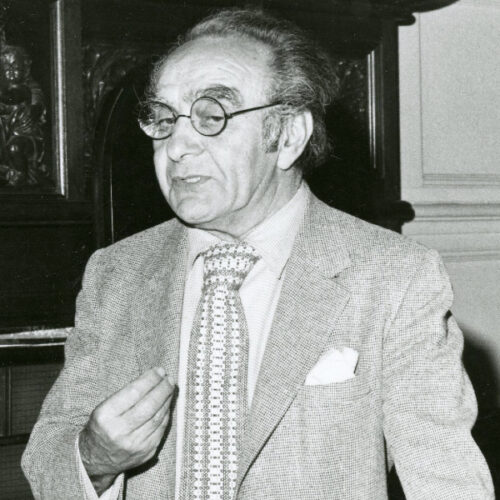

The notion that a man shall judge for himself what he is told, sifting the evidence and weighing the conclusions, is of course implicit in the outlook of science. But it begins before that as a positive and active constituent of humanism. For evidently the notion implies not only that man is free to judge, but that he is able to judge. This is an assertion of confidence which goes back to a contemporary of Socrates, and claims (as Plato quotes him) that ‘man is the measure of all things’. In humanism, man is all things: he is both the expression and the master of the creation.
Jacob Bronowski, ‘Science as a Humanistic Discipline’ in The Bulletin of Atomic Scientists (1968)
Jacob Bronowski was a humanist and polymath, who played a key role in developing humanist thought in the UK during the 1940s and 1950s. His wide ranging interests straddled science and the arts, and Bronowski’s influence was significant in both. This was nowhere more clear than in his widely lauded television series The Ascent of Man (1973), which explored the role of science in human history. He also inspired other leading lights of science communication, including Carl Sagan, who went on to make the TV series Cosmos, and David Attenborough, who had commissioned The Ascent of Man while Controller of BBC2. Though his long-held humanism is frequently less remembered than his contributions to science and broadcasting, it was no less profound, underpinning a dedication to celebrating the scientific and creative capacities of humankind.
Science is a very human form of knowledge. We are always at the brink of the known; we always feel forward for what is to be hoped. Every judgment in science stands on the edge of error and is personal. Science is a tribute to what we can know although we are fallible…
Jacob Bronowski, The Ascent of Man (1973)
Jacob Bronowski was born in Poland in 1908, but while he was still young his family moved home twice: first to Germany and then to England in 1920. He went on to study mathematics at Jesus College, Cambridge, obtaining a doctorate in 1933. He would then spend eight years lecturing at the University College of Hull. A talented and intelligent mathematician, Bronowski was also drawn to the sciences, and to literature. He never contented himself with just one academic interest, devoting his time to a wide range of disciplines, including poetry, philosophy, and biology. Indeed, much of Bronowski’s best work would be the result of his attempts to bring various academic disciplines together to enable us to better understand ourselves and the world around us. This was perhaps first exemplified through his co-editorship of the literary periodical Experiment during his time as a student at Cambridge, and his interests only expanded from there. He was enamoured with poetry, particularly that of William Blake, and though he published scarce little of his own poetry, he would add an original composition to his Christmas cards each year.
In 1942, Bronowski was recruited for the war effort. He was tasked with putting his mathematical and statistical skills to use in optimising Allied bombing runs. Come the end of the war, he would be sent to Japan to report on the effect of the atomic bombings of Hiroshima and Nagasaki, on behalf of the British government. Though he soon after ended his association with the British military, his interest in biology flourished, and he continued to provide advice and research to the British government on a number of different projects. In 1950 he became director of the National Coal Board of Great Britain, helping with research into cleaner fuel, while he also served as a consultant to the newly established UNESCO. He spent a great deal of time in the United States as one of the directors of the scientific research body, the Salk Institute. Through his work on human specificity with the Salk Institute, Bronowski’s skills as a polymath came into their own.
Bronowski was a firm believer that science and the arts, far from being incompatible, were ‘twin expressions of the human imagination’. They were the ‘two cultures’: science cannot be a separate, aloof sphere, cut off from the realm of human values. Bronowski believed that the elevation of value-free science to a god-like transcendency was ultimately responsible for the horrors of the Second World War and the Holocaust. Scientific processes could only flourish if they developed in an environment of ‘truth, trust and freedom to dissent’, and Bronowski saw a humanistic society as simultaneously both a prerequisite and a consequence of a scientific method rooted in human affairs and tied to human values.
It is this over-arching philosophy of Bronowski’s for which he is perhaps most fondly remembered, for it forms the thrust of his extraordinary thirteen-part documentary series The Ascent Of Man. In the aftermath of the Second World War, Bronowski began to appear in the public eye more often, contributing to scientific and philosophical discussions on television and radio, delivering public lectures and releasing a number of important books. He had a natural ability to communicate complex intellectual ideas to a lay audience, and this is what made his 1973 The Ascent Of Man so popular and influential. In the series, released just a year before his death, Bronowski explored the history of humanity and our relationship with an evolving scientific method. The series was hugely successful, admired by both academics and non-academics alike, and was an inspiration for other remarkable humanists, such as Carl Sagan and David Attenborough.
The eleventh episode of The Ascent Of Man, entitled ‘Knowledge Or Certainty’ is surely the series’ most powerful. In it, Bronowski visits Auschwitz, the Nazi extermination camp where many members of Bronowski’s family were slaughtered. In a haunting piece to camera, Bronowski states:
When people believe that they have absolute knowledge, with no test in reality, this is how they behave. This is what men do when they aspire to the knowledge of gods.
This encapsulated the importance Bronowski placed in a human-based scientific process. Science is a uniquely human endeavour, and as such must both reflect and protect human values and human dignity. Seldom has this argument had a more knowledgeable and dedicated proponent than Jacob Bronowski. He was a man who cared deeply about peace, about education, and about liberty; all of which he knew meant nothing unless they derived from within ourselves for the sake of all.
My ambition is to create a philosophy for the twentieth century that shall be all one piece. There cannot be a decent philosophy, there cannot be a decent science, without humanity.
Jacob Bronowski died on 22 August 1974 in Long Island, New York, having suffered a heart attack. His was a life devoted to bringing humanity to bear on science, and to exploring what this – and all forms of human creativity – could teach us about ourselves and others. It was these devotions, and the compulsion to share them, which made Bronowski such a consummate humanist.
The economist Eric Roll, who worked with Bronowski in Hull, said of him:
He was … a warm and vibrant human being. Every encounter with him was a powerful tonic which left one feeling intellectually and emotionally stimulated and enhanced. He did not, however, suffer fools gladly and could be bitingly sardonic about human folly or about the glaring discrepancies so often to be found between public acclaim and true worth. But to his friends he was kind and affectionate, a companion whose gaiety and wit counterbalanced his serious approach to life.
In 2012, a campaign led by the Hull and East Riding Humanist Group, resulted in a commemorative plaque being placed on Bronowski’s former home in the city.
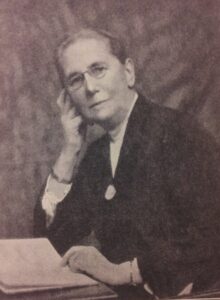
When we are asked to believe that nothing but a supernatural ideal can inspire and sustain a life-time of complete […]
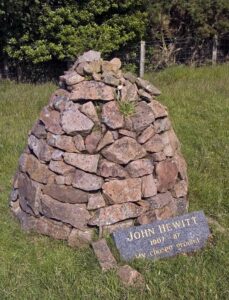
My chosen ground Inscription on the John Hewitt Cairn John Harold Hewitt (1907-1987) was the most significant Ulster poet to […]
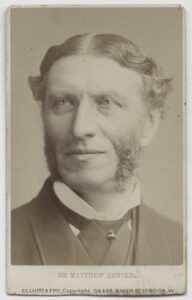
Hath man no second life? Pitch this one high! Sits there no judge in Heaven our sin to see? More […]
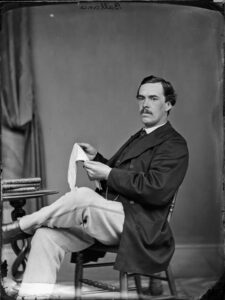
I believe in the absolute equality of the sexes, and I think they [women] should be in the enjoyment of […]